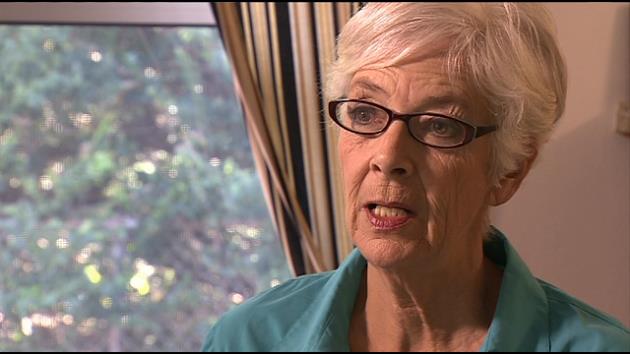Most people by now have heard of lottery scams that promise millions but deliver only deception. One South Florida woman admits she was unaware of these rip-offs, and it cost her big time. Investigative reporter Carmel Cafiero is On the Case.
WSVN — Lottery scams can start with an e-mail or snail mail. A phone call on a cell or at home. The contact methods vary, but the results do not. If you bite, you get burned.
Joan Anderson: “And I said, ‘Oh, this can’t be true. This can’t be true.'”
The call Joan Anderson answered cost her $73,000 because it wasn’t true. The 69-year-old says all the money she had was wiped out in less than two weeks.
Joan Anderson: “I was naive, I was stupid. I feel so awful about myself that I was so stupid to do this.”
Joan says she was told she won two and a half million dollars in a lottery. But before she could collect she had to shell out thousands to pay taxes.
Joan says she wired the money, 13 transactions in all, to the small island nation of Sri Lanka in the Indian Ocean. She had been reassured it was all legit after talking by phone with men who claimed to be in law enforcement.
Joan Anderson: “I thought it was legitimate, that call, and they said they were federal agents. He said, ‘I’m a federal agent. Do you think I would lie about something like this?'”
Real federal agents say all fraudsters do is lie.
John Tobon: “They send e-mails and make phone calls all day. They just need that one person to take a bite.”
Homeland Security investigator John Tobon says there are known international hotspots, like Canada, Jamaica and Costa Rica, where lottery scams flourish.
John Tobon: “Sri Lanka is newer, in terms of what we’ve seen.”
And thanks to Internet technology, we cannot rely on caller ID to show where a call is coming from. The screen could show an area code in the USA when the call is really coming from the U.K.
And the money could be going into the hands of petty criminals or dangerous terrorists.
John Tobon: “We have identified or tied these individuals to organizations that use this in order to gather funds to buy guns. They take these funds and they buy narcotics and then ship the narcotics to the United States.”
Losses from lottery and similar scams topped $63 million in the first six months of last year, according to the Federal Trade Commission. But since many victims don’t report the rip off, the true amount could be in the billions.
Steve Baker, FTC: “There is so much fraud out there, I wouldn’t believe it if I didn’t do it for a living.”
Unlike many victims, Joan is speaking out despite her embarrassment at being taken.
Joan Anderson: “Because I want to help other people.”
Joan tells us she’s now broke and facing criticism from family members who can’t believe what she did.
Carmel Cafiero: “But scammers are skilled, and they have an answer for everything, so your answer should be ‘no’ anytime a stranger wants upfront money for anything. Carmel Cafiero, 7News.”
IF YOU HAVE A STORY FOR CARMEL TO INVESTIGATE:
Miami-Dade: 305-627-CLUE
Broward: 954-921-CLUE
E-mail: clue@wsvn.com

